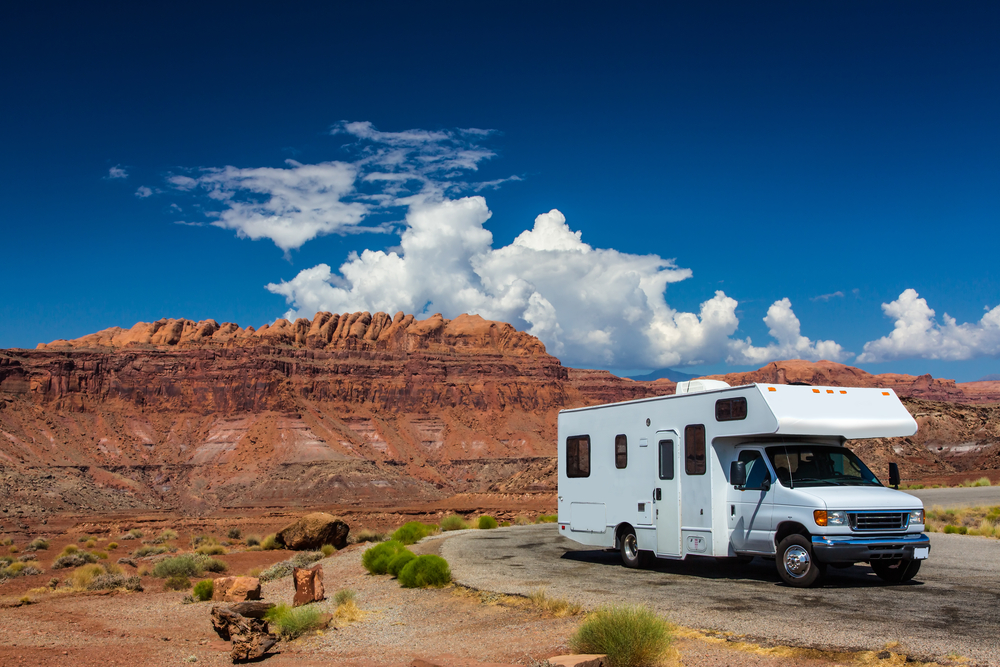How to Prep Your RV for the Next Road Trip
 Whether you are a first-time recreational vehicle owner or are taking your one hundredth trip across the country, preparing your vehicle ahead of time can save you a lot of hassles down the road. While the items on your pre-trip checklist will vary depending on where you are going and how long you plan on being away, as well as on who will be accompanying you on your road adventure, there are a few important vehicle basics to remember for every trip you take.
Whether you are a first-time recreational vehicle owner or are taking your one hundredth trip across the country, preparing your vehicle ahead of time can save you a lot of hassles down the road. While the items on your pre-trip checklist will vary depending on where you are going and how long you plan on being away, as well as on who will be accompanying you on your road adventure, there are a few important vehicle basics to remember for every trip you take.
Four Inspections to Prepare Your RV
Planning for enough time to make repairs on your RV pre-trip is crucial towards making sure there won’t be any delays during your trip. Conduct a thorough inspection of your RV at least one to three months prior to departure so that there is enough time to order and install any new parts your vehicle may require. Particularly in the current marketplace with supply-chain complications brought on by the Covid-19 pandemic, you don’t want to wait to the last minute to order a mechanical part, and then be told by your mechanic that the part will take one month or more to arrive!
With that strategy in-mind, there are four RV inspections every RV owner should complete ahead of time in order to avoid costly repairs or departure delays: the RV roof, tires, mechanicals, and hitch and tow checks. Follow along below for tips on checking each item off your list.
RV Roof
UV rays, water from condensation/rain, salt used for de-icing roadways and other weather conditions can deteriorate the sealant coating your RV’s roof over time. If you own an RV with a walkable roof, make sure to do a walk-through and look for cracks or broken seals in your roof system. If you do not own a walkable RV, use a ladder and inspect the roof as closely as possible. A good way to check your roof’s sealant is by running your palm across the surface. If a white, chalk-like residue sticks to your hand and fingers, then it’s time to reseal your roof.
RV Tires
Tire blowouts are the leading cause of RV accidents for these heavy homes on wheels, so always inspect the tires on your RV as well as the spares you may carry. When/if your vehicle is in long-term storage during the winter months or during times of non-use, the tires should be raised off the ground to reduce the stress and distortion of resting in one place with your RV’s full weight bearing down on the same spot. You can easily see if it’s time to replace your tires by checking the tire pressure for consistent pressure, as well as evaluating the condition of the lug nuts, the wear/tear of the tire tread and noting the age of the tires. The rubber in tires slowly breaks down over time – while in use or while in dry dock.
RV Mechanicals
Always perform a complete mechanical check of your camper or mobile home before any trip you intend to take. If the RV’s technical manual recommends specific maintenance to be done by a certified technician, then please take your vehicle to a professional mechanic. Do not disregard dashboard warnings from your electronic system, and double-check the warranty requirements fairly often. Here are key components you should always check on your RV:
- Brakes
- Axels
- Differentials
- Fluids (Don’t forget the oil!)
- Filters
- Belts
- Hoses
- Wiring
- Lights
- Horn
- Slide outs (as applicable)
RV Hitch & Tow
Your hitch and towing equipment should be in good order before embarking on a trip in order to avoid accidents with other vehicles and to prevent a detachment that could damage your RV. Pay extra attention to the coupler and all hitch pins used in your setup. The hitch coupler and pins prevent your RV and tow vehicle from disconnecting during travel – very important! Check your equipment for corrosion, wear and loose parts while also inspecting each component listed below:
- Fifth wheel trailer kingpin and fifth-wheel components
- Conventional trailer-hitch components
- Weight-distribution hitch components
- Sway control-system components
- Tow dolly components and accessories
- All bolts
- All cables
Inspect & Test All Other RV Systems
Even after completing the four checks above, you will want to inspect and test all remaining systems of your RV. This includes everything from the HVAC system to the patio deck to your fire extinguisher and your media entertainment system. If you skipped washing your RV previously, it’s a good idea to thoroughly wash your RV exterior in order to help with the visual inspection as well as for water leak detection around the windows and doors.
Another important check you will want to make is to inspect your RV windows, windshield and window seals for chips, cracks, leaks, decaying seals or fog in the glass. Driving with foggy windows can mean lower visibility for the driver – a dangerous as well as annoying scenario on the road that can be eliminated with a repair or replacement. Should your windows or windshield need RV glass repairs or replacement, Custom Glass Solutions are the experts you should turn to – our network of glass shops across the USA can equip you with a great new windshield and we work with many insurance providers to make the purchase and installation more affordable.
About CGS
Custom Glass Solutions provides RV glass repair and replacement services to RV owners coast to coast for numerous RV brands. If you’re looking to fix your broken motor home windshield, the Custom Glass Solutions team can guide you through the process – from filing an insurance claim to having a new windshield installed. Fill out the form here or call (855) 782-5246, toll-free, to get started with CGS today. Please don’t hesitate to contact us if you have any questions about our RV glass products and services – we’re here for you!
Written by Matt Eder

